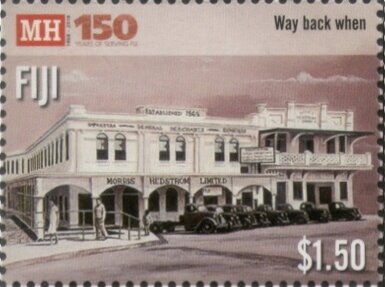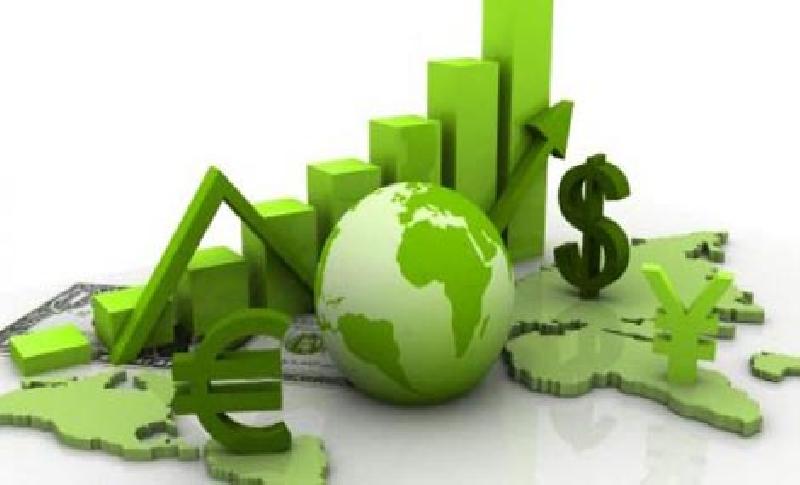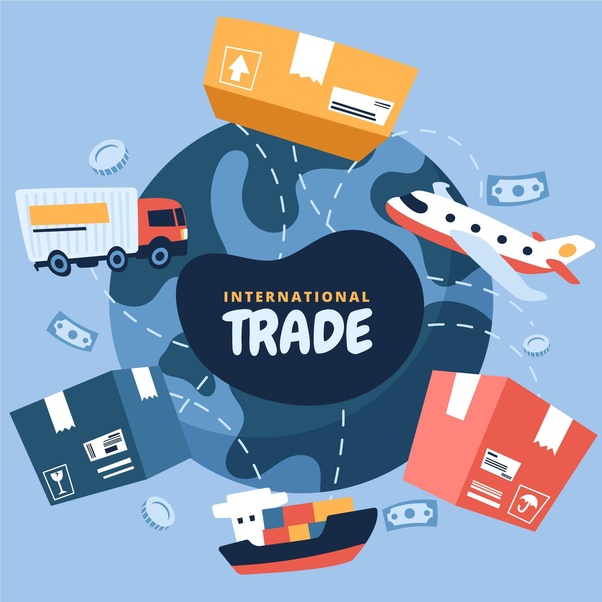Stamp: Way Back When (Fiji 2019)
Way Back When (Fiji 2019)
01 July (Fiji ) within release 150th Anniversary of Morris Hedstrom Ltd (2019) goes into circulation Stamp Way Back When face value 1.50 Fijian dollar
| Stamp Way Back When in catalogues | |
|---|---|
| Colnect codes: | Col: FJ 2019-02D |
Stamp is square format.
Also in the issue 150th Anniversary of Morris Hedstrom Ltd (2019):
- Stamp - Copra Boat face value 50;
- Stamp - Steeped In History face value 85;
- Stamp - The Way We Were face value 65;
- Stamp - Way Back When face value 1.50;
- Stamp - Birth of a Legacy face value 5;
|
Data entry completed
50%
|
|
|---|---|
| Stamp Way Back When in digits | |
| Country: | Fiji |
| Date: | 2019-07-01 |
| Print: | Offset lithography |
| Emission: | Commemorative |
| Format: | Stamp |
| Face Value: | 1.50 Fijian dollar |
Stamp Way Back When it reflects the thematic directions:
An economy is an area of the production, distribution and trade, as well as consumption of goods and services. In general, it is defined as a social domain that emphasize the practices, discourses, and material expressions associated with the production, use, and management of resources. A given economy is a set of processes that involves its culture, values, education, technological evolution, history, social organization, political structure, legal systems, and natural resources as main factors. These factors give context, content, and set the conditions and parameters in which an economy functions. In other words, the economic domain is a social domain of interrelated human practices and transactions that does not stand alone.
n economics, a market is a composition of systems, institutions, procedures, social relations or infrastructures whereby parties engage in exchange. While parties may exchange goods and services by barter, most markets rely on sellers offering their goods or services (including labour power) to buyers in exchange for money. It can be said that a market is the process by which the prices of goods and services are established. Markets facilitate trade and enable the distribution and allocation of resources in a society. Markets allow any tradeable item to be evaluated and priced. A market emerges more or less spontaneously or may be constructed deliberately by human interaction in order to enable the exchange of rights (cf. ownership) of services and goods. Markets generally supplant gift economies and are often held in place through rules and customs, such as a booth fee, competitive pricing, and source of goods for sale (local produce or stock registration).
Trade involves the transfer of goods and services from one person or entity to another, often in exchange for money. Economists refer to a system or network that allows trade as a market.



